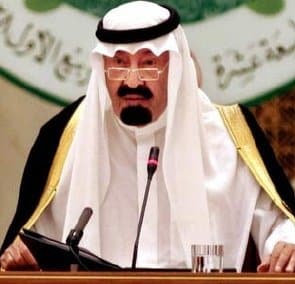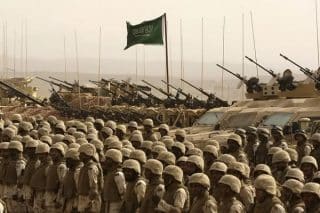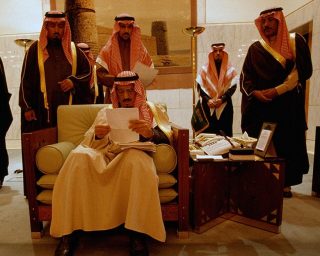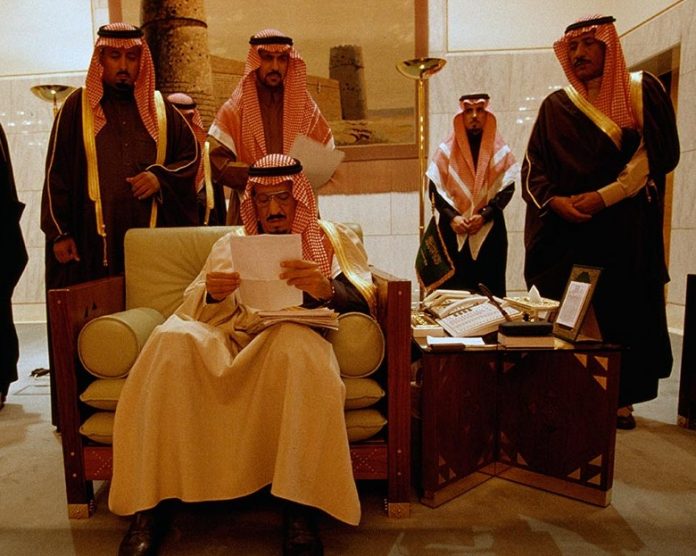… by Viktor Titov, … with New Eastern Outlook, Moscow
___
The seven golden domes of St. Petersburg[ Editor’s note: Viktor gives us a look into the internal Saudi political pressures that are simmering, due to the ripple effect of the oil prices decline, reducing tribal oil profits cash flows by two thirds, and then this new Yemen war added on top of it.
Restoring Hadi, the Saudi puppet for Yemen, will have little support domestically, so we must assume that a full military occupation of the country would be needed to effectively usurp the Yemeni popular will.
Despite the Saudis’ huge military supremacy over Yemen, a basically impoverished country, the King put out calls literally for emergency military assistance.
One would have thought that the Yemenis were invading and marching toward Riyadh. The Arab League NATO has openly stated it will take them six months to set up some kind of a joint command structure, despite the feasibility of this having been discussed for a long time already. What was their officer corps doing all of this time? This is what they all went to War College for — to learn operational planning.
The Saudis also suffered a major diplomatic defeat when, after getting a quick positive Pakistani government response on assisting in the Yemen military gang bang, its Parliament not only overwhelmingly rejected any involvement, but accused Saudi Arabia of being the real aggressor.
The UAE Foreign Minister took first prize for the most stupid remark so far, when he told a country of 180 million people that there would be “serious consequences” for their actions, or inactions really in this case. He should be drug tested right away.
It seems these smaller Arab Sheik countries have been thinking that, because they can buy off the top political leadership of their more populous neighbors, the people and soldiers of those countries become obligatory cannon fodder to be used at will. The term “legends in their own mind” comes to mind.

But I think Viktor went overboard, rare for him, with his posing that some of the Saudi tribes might effectively secede. With the Royal family in charge of all the military, banking, government infrastructure, and oil, just what improvements would they expect to get from that action. Oil prices would still be low.
He also, in my opinion, is overestimating that the Saudis are facing a military disaster here. There are no plans for an invasion on the horizon.
It seems much more likely that the bombing campaign will continue, with the King appearing to have IDF advisers who are pitching him the “Gaza treatment” for Yemen… collective punishment on the country for not voting the right way. Gosh, where have we seen that before.
Iran will not really be able to do anything either, not because of the nuclear talks sensitivity, but because the air and naval blockade will definitely be solid. The Yemeni opposition will not be able to replace its depleting ammunition, and fuel supplies could be a critical element soon.
If there has to be a land component to put more pressure on the Houthis, the Saudis will want them to have limited mobility so as to engage and defeat them piecemeal.
Because most of the world does not even know where Yemen is, there seems little chance of any international outrage to exact a major political price for the anti-Yemen coalition members. Of course, as the civilian situation gets worse, that could all change.
It is still way too early to get the pundit crystal balls out on this one. I fear we could be watching a “mini-Syria” scenario developing, with continuing infrastructure destruction and the people reduced to living like the millions of Syrian refugees. Arabs will be doing this to Arabs, eliminating the ever popular Western racist colonial mantra for a change… Jim W. Dean ]
________________________________
– First published … April 10, 2015 –

It seems that the old saying: “when you plot mischief for others, you’re preparing trouble for yourself” could not be any more accurate.
And so it was with Saudi Arabia, who launched military aggression against its neighbor on 26 March, after building a shabby coalition in a matter of hours out of GCC countries that was later joined by Egypt, Sudan, Jordan and Morocco.
Over the past two weeks coalition aircraft have been trying consistently to bomb Yemen back to the Stone Age. A total of 500 civilians have been killed, out of whom 70 were children. At the same time Houthi forces are not suffering any considerable losses, yet the civilian infrastructure is being destroyed which may lead to a true humanitarian catastrophe.
Thousands of foreign experts are leaving Yemen in a hurry in an attempt to escape air strikes. Meanwhile, the Houthis along with the regular military units that remain loyal to former President Ali Abdullah Saleh, carry on their offensive in the southern regions.
Coalition members began facing serious challenges, all challenges easy to predict due to the fact that a considerable percent of the Saudi population (up to 12-15%) are followers of Shia Islam, and the better part of them sympathetic to the Houthis, since they championed against corruption and religious persecution that was widespread in Yemen under the pro-Western Sunni government.
On April 5, a group of local Shia militants killed one policemen and wounded three more during an attack on a police station in the Eastern Province. Two days later a number of Saudi cities saw numerous demonstrations that were violently suppressed by the army, leaving behind killed and wounded demonstrators. In response, some of the less restrained have already declared the beginning of a Shia uprising. It is reported that clashes in the cities of Al-Awamiyah and Qatif lasted for hours.
In this context it is curious to note that the official religion of Saudi Arabia is considered illegal in a number of states, including Russia. The Wahhabis believe that the Shiites are not true Muslims, just like the Sunnis.
And these radicals beliefs come at a certain price today. On April 8 the capital of the Kingdom – Riyadh, became the scene of a violent attack when armed Shia militants killed two policemen. The situation remains tense in the border areas as well, where Saudi troops are concentrated. As a result of regular attacks and shellings a total of 5-6 servicemen are being killed daily.
But what can be even more dangerous for Saudi Arabia are discontent local tribes, which play a fundamental role as the basis of Saudi society. The sharp decline in oil prices that was originally initiated by Saudi Arabia left tribal sheikhs with three times less from official “subsidies”, which are provided to them by the royal family.
This is owed to the fact that according to the existing system in the KSA, oil is sold to tribal sheikhs and leaders of influential clans at 24 dollars per barrel for them to resell it in international markets for a higher price. Last summer prices picked up to a level of 100 dollars a barrel, but now they barely exceed 58 dollars a barrel.

In addition, the war requires additional expenditures by the State Treasury, which also has led to a reduction in the payments of subsidies provided to tribes.
According to recent reports, the sheikhs have already presented Saudi King Salman their demands, threatening him with disobedience if they are not met.
At this rate Saudi Arabia can easily be fractured into a number of tribal areas, leaving the Al Saud dynasty behind. The tribes may launch an uprising and the federalization of the Saudi state. And then nothing will be left in its place except for a number several quite distinct entities, as it was in the early 20th century.
Among those who are tired of the dictates of Riyadh, one can notice Qatar, which has been suffering under the status of a Saudi puppet along with the UAE. There is also Iraq, where the Saudis are trying to undermine the Shiite majority in favor of the Sunnis. Of course, Syria has become the object of Saudi intervention leading to the current Syrian Civil War.
Egypt too, has been embroiled in a love/hate relationship with Riyadh. Finally, there is Iran – Saudi Arabia’s main competitor in the region and defender of the interests of all Shiites across the Middle East. If Tehran intervenes in current events, the KSA will be essentially doomed.
The Iranians have thus far behaved passively, apparently out of fear of derailing an agreement on the Iranian nuclear program that has recently been signed in Lausanne. And in the US, apparently, the current Obama administration is tired of the constant pressure of the Saudi lobby, so it wouldn’t be too unhappy to see a weakened Riyadh.
By embarking on a military gamble in Yemen, King Salman now risks losing it all. Especially since he has finally become a king in his 80s, no more than three months ago. Immediately after his coronation he has started reshuffling the government, weeding out those who didn’t contribute to him in the establishment of his authority.
Now he has two options – achieve a quick victory in the war against the Houthis, which is impossible without ground operations, or stop this aggression. The next few days will show how things go. But since Salman is known for its ambition, stubbornness, and excessive optimism, there’s little chance that the outcome will be any good for Saudi Arabia.
Viktor Titov, Ph.D, is a political commentator on the Middle East, exclusively for the online journal “New Eastern Outlook”.

Jim W. Dean was an active editor on VT from 2010-2022. He was involved in operations, development, and writing, plus an active schedule of TV and radio interviews.
ATTENTION READERS
We See The World From All Sides and Want YOU To Be Fully InformedIn fact, intentional disinformation is a disgraceful scourge in media today. So to assuage any possible errant incorrect information posted herein, we strongly encourage you to seek corroboration from other non-VT sources before forming an educated opinion.
About VT - Policies & Disclosures - Comment Policy






